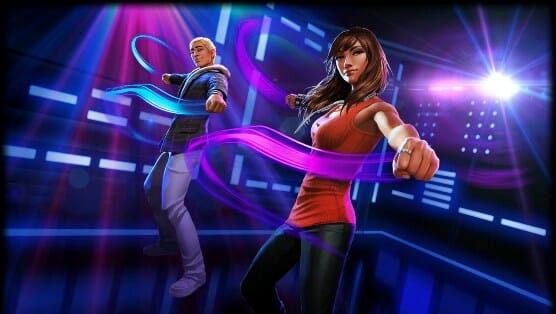Dance Central Spotlight (Xbox One)

I don’t know why it took me so long to write about Dance Central Spotlight. I’ve got no excuse, review code showed up weeks ago, and the editor’s emails have gotten increasingly more acidic as weeks piled up between the release date and now. I’d stare at it from across the room, and go back to doing what I was doing. It’s procrastination, sure, but this goes deeper than that. The source of my dallying was clear, I was going to have to dance, alone, in my two-room apartment, in front of my television. When I sashayed to Lorde’s “Royals,” bleary-eyed in inside-out boxers, I was just trying to pay the bills.
Dance Central Spotlight isn’t a game as much as it’s a platform. Microsoft’s business model has been especially focused on building the all-in-one monolith to serve your gaming, streaming, chatting, football-watching needs. The Xbox One is a faint, some would say doomed hope to achieve iPhone-like ubiquity, and making sure there’s a Dance Central to take your money and shake your money-maker is part of that plan. The game itself will run you $10, and give you exactly 10 songs to enjoy. If you’re at all familiar with the Dance Central formula you’ll be right at home here, with fluorescent pop songs guided by the best of rudimentary backup-dancing routines, and the occasional mind-bending Kinect video filters that serve as a healthy amount of tech-demo reverie. The routines are admittedly solid, and each song comes with a variety of different sequences to play through, and you’re also stocked with strength and cardio routines if that’s your sort of thing.
This is good. It’s a lean, mean, dancing machine. For someone like me, who would never ever spend more than, say, 15 dollars on a dancing video game, it actually feels like a bargain. The initial slate of songs already feel sort of dated (will.i.am and Justin Bieber’s horrendously hashtagged “#THATPOWER,” Rihanna’s “Diamonds,” which is probably her 14th best song, and motherfucking OneRepublic,) but that seems like the point.
You see, the fundamental money-maker of Spotlight is the DLC store. The idea being that you’ll always be willing to spend two dollars to download a new song to take to the virtual club. The DLC tracks are just as robustly outfitted as the initial material, and that’s enough for the panhandling to feel justified and not desperate. It took exactly five seconds to talk myself into buying Pussycat Dolls’ “Don’t Cha,” which, frankly, is not a good sign for my bank account.
 Keep scrolling for more great stories.
Keep scrolling for more great stories.

